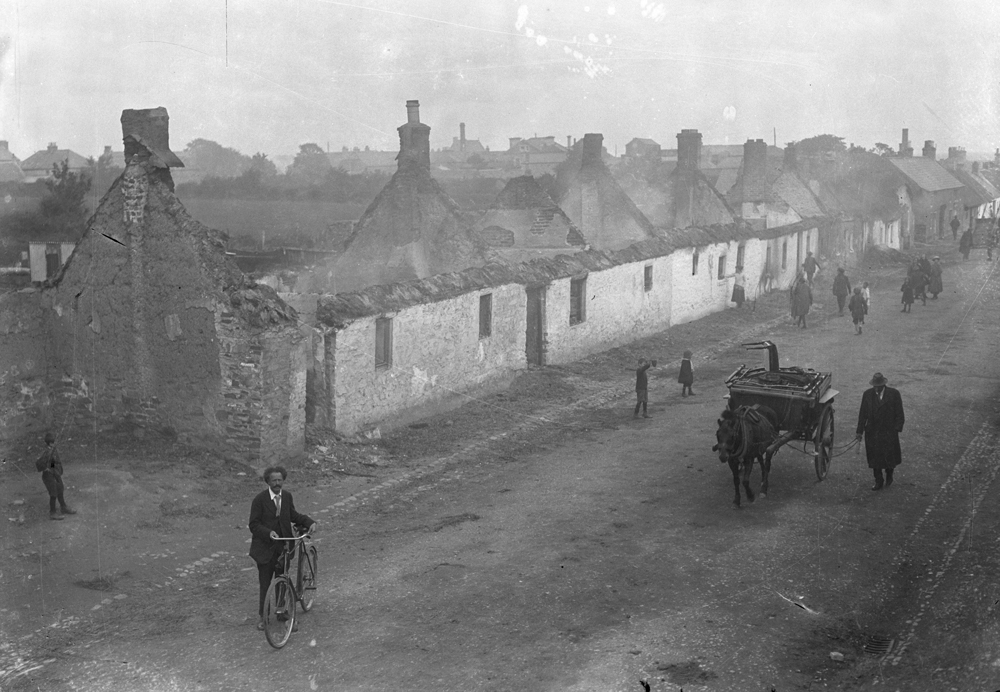‘We did not come to Ireland for this’ - ex-Black and Tan reveals reasons for resignation
Dublin, 1 October 1920 - A former member of the Black and Tans has opened up on his reasons for leaving the force.
Alfred Flint, an Englishman and ex-soldier, speaking to a representative of the Freeman’s Journal, states that he tendered his resignation after the military reprisals in Balbriggan:
‘Then they asked me my reasons, and I told them when I joined I thought I was going into a police force, and when they asked me ‘what did you go into?’, I said straight: ‘it looks as if it was into a corps of bandits’.’
He added that 137 members of the Black and Tans have left the force in recent weeks and a further four were dismissed from the camp at Gormanston on 29 September.
British Pathé footage showing some of the damage that occurred during the Sack of Balbriggan
The Sack of Balbriggan was the only raid in which he took part and he makes clear that they were told to go to the town for the purposes of a reprisal raid.
Flint also provided an account of how the rampage began. The men first stopped at a public house, which they looted, taking the alcohol with them, before setting the building ablaze. They drank from the stolen bottles of whiskey and brandy as they fired gunshots, and smashed windows and doors with rifle butts. At least 100 soldiers were involved.
Flint says that the following morning there was a lot of questioning among the Englishmen in the group about what had happened and the pretences upon which they had been brought over from England. ‘I tell you we did not come to Ireland for this sort of work. And there is proof that they knew what we thought about it in camp.’
He told the paper that revealing his reasons for resigning from the Black and Tans would be a ‘service to everybody both here and in England.’
Flint, a Londoner by birth, served with the Royal Scottish Regiment – the same regiment his father had served in – and was part of the original expeditionary force to France during the Great War. Captured after six weeks, Flint was sent to a camp in Westphalia and remained a prisoner until the end of the war in 1918.
[Editor's note: This is an article from Century Ireland, a fortnightly online newspaper, written from the perspective of a journalist 100 years ago, based on news reports of the time.]





















